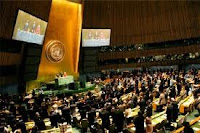
Non-state actors are significant in both spheres, trade and environmental diplomacy. In case of trade, two types of non-state actors are of utter importance, namely trans-national corporations and non-governmental organizations (NGOs). The first ones today often conduct their own diplomacy in order to advance their economic goals and no longer rely on diplomatic services provided by governments. The latter, NGOs usually have a somewhat contrary role and their diplomacy aims to ban trade in areas that harm local livelihoods, fauna or environment in general. Often state diplomacy and states themselves can be seen as “obstacles to change, not proponents of change” (Princen and Finger, 1994: 31) aiming to maintain order and stability. Thus, even if trade often leads to increasing environmental and other severe threats, governments as “defenders of the status quo” are not the likely actors involved in reducing those threats. (Ibid.)

The case of ivory trade is an eminent example of a case where trade that is beneficiary to many also produce irreversible harm to others, which makes it hard to reach any agreements by state negotiations alone. Trade in ivory has a long history, but this has meant that where as 500 years ago there might have been up to 10 million elephants in Africa but in 1979 only about 1.3 million, with 625 000 left in 1989 according to estimates. (Ibid. 121) Obviously, ivory trade was not the only reason also droughts, hunting, loss of habitat to humans and natural deaths were partly responsible for the decline. However, the most significant immediate cause of death has been poaching encouraged by the increasing demand and price for ivory after the World Wars. In Hong Kong, Europe and Japan the price of raw ivory rose from approximately $3-10 a pound in the 1960s to $200 a pound in the 1980s. Around the same time the ability to mass produce ivory carvings improved leading to ever increasing elephant killing and according to some estimates 200-300 elephants were killed by poachers daily. (Ibid. 122)
The response began with Ghana listing African elephants on appendix III of the Convention on International Trade in Endangered Species of Wild Fauna and Flora (CITES) in 1976. Elephants were uplisted to appendix II in 1978 and in 1985 the parties to CITES established the first export quotas and trade control systems.(Ibid.125) CITES, the intergovernmental institution could do but little to handle the wider elephant problem, there was need for non-state actors to get involved. Until this NGOs had mainly documented the decline and lobbied for a ban, but had mainly been ignored by CITES and its member states. However, in the 1980s NGOs managed to get a voice hard to ignore. After impressive lobbying and negotiation the United States African Elephant Conservation Act of 1988 was passed, forms of public diplomacy were used to heighten the public concerns for the elephants.
In 1989 the appendix I was finally agreed on with an international ban. (Ibid.127) In achieving the ban it was necessary to influence consumer behaviour in order to stop the trade, this could not have been done by states and their organizations because after all "states pursue economic growth through the promotion of production, consumption, and trade” and thus, international NGOs have stepped in to fill the “diplomatic niche”. (Ibid.134) These NGOs have the knowledge and can operate over state boundaries and have had huge impact in pushing the one hundred plus CITES member countries towards the ban agreement, which might not have been possible through traditional diplomatic routes. (Ibid.135-6)
In relation to CITES itself, CITES secretariat seems to turn to international NGOs in numerous cases as they “hold a peculiar advantage” as they are not bound by state boundaries and can conduct diplomacy that does not need to be nice or fawn anyone and governments can only retain good diplomatic relations through compromises. (Ibid. 142)
In general the importance of NGOs in both environmental and trade negotiations is the “influence achieved by building expertise in areas diplomats tend to ignore and by revealing information economic interests tend to withhold”. (Ibid. 41) Thus, it is important to remember that “[b]ad policies do not remain in effect simply because an absence of good ideas but also because powerful forces block the adaptation of those ideas” and non-state actors often are the most powerful counterforce of these enhancing the possibility to adapt some new ideas. (Ibid. 37)
Sources:
Princen, T. and Finger, M. (1994) Environmental NGOs in World Politics: linking the local and the global. London: Routledge




 Chilean President Pinera and Bolivian President Morales showing unity during the crisis
Chilean President Pinera and Bolivian President Morales showing unity during the crisis











